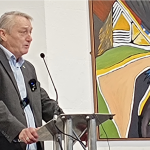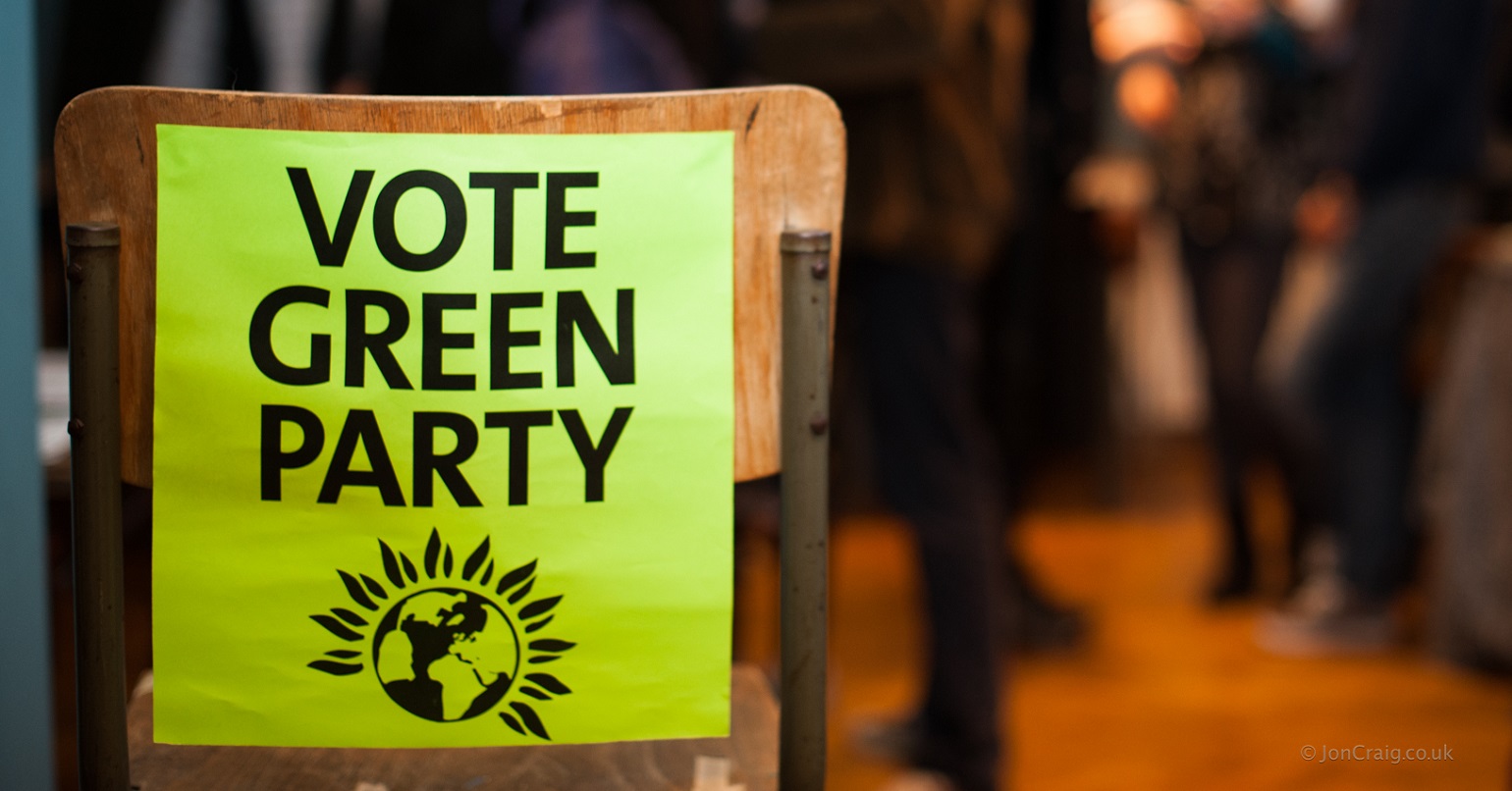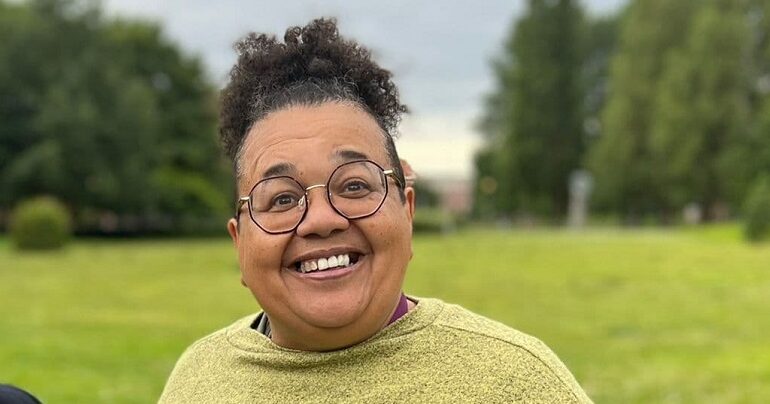Jews Don’t Count is a missed opportunity to understand antisemitism

David Baddiel’s new book, Jews Don’t Count, captures a lot of the rage and frustration that many British Jews have been feeling in the past few years. His Twitter feed is a hellscape of abuse and antisemitism. He doesn’t feel listened to. He feels alone. He feels that he hasn’t been protected by the people who are supposed to protect and care about him. I am sure that people from many minority groups will be able to identify with these feelings.
Baddiel, as one of the most recognisably Jewish British Jews, has been at the centre of what can be vaguely termed, the left’s antisemitism crisis. Understanding this crisis, from Baddiel’s perspective would be incredibly challenging. Thinking through the noise of the abuse, criticism and even supportive commentary that is his experience and coming to clear conclusions must be near impossible. We should bear in mind that he is not a historian or a political theorist, but a comedian, who doesn’t necessarily have the skills and training to understand his situation. This book, rather than being a sure-footed analysis of the role antisemitism plays on the contemporary left, should be better read as a howl of pain and anger at antisemitism more generally, and the ways in which he is being ignored by people who should care.
His thesis, is that for ‘progressives’ (a group so broad that it includes the Football Association, the Liberal Democrats and committed Marxists) Jews and antisemitism don’t matter in the same way that other forms of discrimination matter. Liberal identity politics has failed to protect Jews. This failure is different for Jews than for any other minority. Jews don’t count.
Take this passage about minority casting as an example:
Jews remain the only minority, and I am thinking beyond ethnic, to include disabled, trans and many other characteristics, where you don’t have to cast the actor as the real thing. There will be instant outrage and consequences to casting say a trans part to anyone but a trans actor.
His point is not really that Jews should only play Jews. He is not arguing that there is an underrepresentation of Jews either as actors or characters within popular films which needs to be corrected. He does not think that non-Jews can’t or don’t give convincing portrayals of Jews. Nor is it that cis actors should be allowed to play trans parts. His point is that there should be outrage for Jews and for our suffering.
This feels like a missed opportunity. The paradigm he has identified might say something important about the specificities of antisemitism in comparison with other forms of discrimination. If Jews are allowed a wider range of representation in popular culture than other minorities, that might show that Jews can by symbolically included in Western societies in ways other minorities can’t. If ‘no other minority would be treated like Jews’, then there must be something unusual about antisemitism and it’s role on the left. But Baddiel’s book lacks any attempt to engage with antisemitism in its specificities, other than a vague notion that Jews have more capital. Without any attempt to articulate the specific ways in which antisemitism functions differently, he leaves his complaint that ‘no other minority’ would be treated so badly, open to being read as an incorrect and borderline offensive statement about how well other minorities are treated by ‘progressives’.
This paradigm – that the norms of liberal representational politics don’t really apply to Jews – could be used as starting point for a criticism of the limits of liberal representational politics as a mode of political activity. Jews may have a range of representations with popular media, and see themselves represented within popular culture as both actors and characters, but this does not make us free. It doesn’t stop David Baddiel being abused at football matches or on Twitter. It doesn’t stop hate crimes. It doesn’t make us feel safe or listened to. Many other minorities will recognise the limits to representational politics. The existence of a well-rounded trans character in Orange is the New Black, while good in itself, does not mean trans people can access healthcare equally. The BBC’s excellent Smallaxe does not mean that there will be an equal justice system. Baddiel has identified a limit to representational politics but doesn’t have alternative project. Instead, we have a deeply felt anger at a system that doesn’t work for him.
His consideration of Jewish whiteness feels similarly empty. He writes:
Jews are not white. Or at least don’t feel white. I don’t just mean that some Jews are of Middle Eastern descent and their Melanin follows suit. (Although one of my first jokes when starting standup was that I had been beaten up two times in my life, one for being Jewish, one for being Pakistani). I mean that being white is not about skin colour but security. It is about being protected because you are a member of the majority culture.
It is highly debatable the extent to which whiteness is a matter of feeling. As a white Jew, I can feel as removed from the majority culture as I want. This will not make me more likely to be stopped and searched. It will not mean that I am taken less seriously, or viewed as more threatening in my job at a university. White Jews, when they travelled to the British Empire were treated as citizens rather than subjects. Race is much more a matter of socio-historical assignment then personal emotion. His statement that Jews are not white, obscures the range of complexities of Jewish relationships with antisemitism and white supremacy, and the understanding as to how this connects with other forms of racism. What we are left with is not really an analysis of the role of antisemitism and its relation to whiteness, but a statement that David Baddiel feels profoundly unsafe.
Jews Don’t Count suffers from a strangely split identity. It is not clear whether this intends to be a serious political analysis of antisemitism, a personal memoir, or an extended political sketch based upon the stupid and racist comments he has received on Twitter. If it aspires to the first, it seems odd that he has not engaged with any literature beyond that which he has passively consumed through being a Guardian reader, a Twitter user and a BBC listener. Antisemitism on the left has been a matter of intermittent intense debate at least since Marx’s pamphlet on the subject in 1843. Antisemitism more generally has been analysed by such luminaries as Jean Paul Sarte, Frantz Fanon, Hannah Arendt, Zygmunt Bauman and Judith Butler. None make an appearance. Even if the academic literature was too much for him to engage with, then casting his eye over the work of the Jewish Policy Research or Community Security Trust might have made is analysis less anecdotal. Perhaps a greater awareness of other people who have thought about these issues might have helped put his anger in context.
Baddiel’s deep sense of melancholy is felt keenly throughout the book. He desires, more than any political program, an outrage which is commensurate with the scale of inter-generational Jewish suffering. He feels alone and abandoned by those who should be his friends. Nowhere in the book is any sense of hope, or any relief. Is there a solution to Baddiel’s melancholia?
He might try seeking out other groups that might be feeling the same emotions. I suspect much of the poor, or Muslim communities, or traveller communities, or migrants, or LGBTQ+ people might sometimes feel let down by those who should be their friends. They might feel like they are not listened to, that there is no outrage that can match the scale of their suffering. They might feel that they don’t count. If Baddiel listens to them he might come to a new understanding of the ways in which their oppression works, and the ways in which it is both similar and different to antisemitism. From that shared understanding, and grief and rage – that solidarity – he could maybe begin to conceptualise a society where Jews, in common with other minorities, do count.
PS. We hope you enjoyed this article. Bright Green has got big plans for the future to publish many more articles like this. You can help make that happen. Please donate to Bright Green now.
PPS. Bright Green has an exciting series of events coming up. Join us for debates, interviews and much more.
Image credit: Amnesty International UK – Creative Commons




Jesus Christ, this article is vile antisemitism straaight out of 1930s Germany, and amply proves Baddiel’s thesis.
I have not read the book.
Racism is poisonous and very potentially dangerous, to state the obvious. I feel immense sympathy with Baddiel. I remember a TV programme where he visited the ruined site of his family’s enterprise, and thought of his relatives slaughtered and dispossessed.
This review is criticising him for not being analytical, but I assume Baddiel did not set out to be analytical, but to express his experience, which is entirely valid and should be accepted on its own terms.
The Left’s concentrates on minority discriminated sectors of the population, but without making society radically more equal, there is no solution, and the stance becomes self-congratulation, and smug righteousness.
The GP’s list of such worthy stances is as long as your arm, but without aiming to radically equalise society, it is just a stance, and dissipates radical energy.
Neither have I read Mr Baddiel’s book. However, from this review, the book appears to be akin to a teenager telling the world that no-one understands him. And that’s it. But he has platforms available to few others to express his feelings and he has a responsibility to go further than that or he must expect severe criticism for being self-centred and adolescent. It’s not too much to ask for some depth and analysis of the complex situation facing British Jewish people, but I suspect he knows that his audience and readers don’t want that – they prefer easy complaints with some gags.